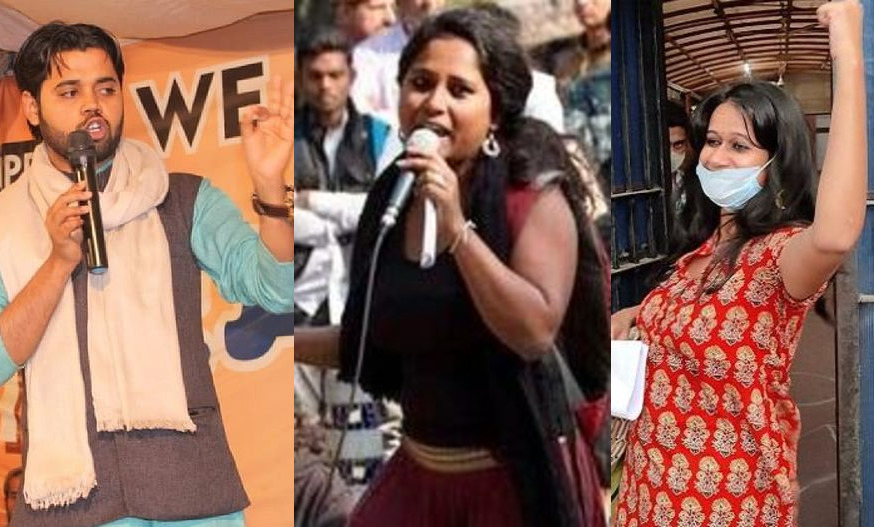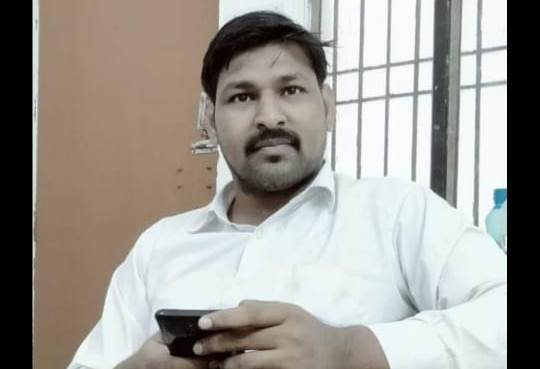Old men, however powerful, or, drowned in the heady intoxication of their own glory and greatness, should rethink their relationship with the young, with or without a generation or ideological gap. Especially, those who are dissenters, thinkers, protesters, rebels, contrarians, idealists, dreamers – who don’t agree with ‘their’ idea of the world! And who refuse to succumb, come what may – police atrocities, prisons, draconian laws, huge charge-sheets, concocted charges, fake news, demonization in the sold-out media, and a priori condemnation as ‘anti-nationals and terrorists’.
Why should the old and powerful refuse to learn lessons from history? Power does not hold forever. No greatness is eternal. Time is never a great healer. Immortality is impossible. Prisons and injustice cannot kill ideas or idealism. Perhaps delayed, justice too must arrive, one day. Hope floats. And dreams don’t die so easily, especially in the hearts of the young.
So why are the those hailed as Dear Leader, the Great Helmsman, Prophet, Iron Man or Messiah, with the entire State apparatus and media at their command, therefore, obsessed with the paranoia that some young scholars are their enemies? Why are they so afraid of their youthful dreams?
The young are not the enemies of an ‘open society’. If the open society is flawed and fragmented, is it their fault if they are choosing to ask questions? Those in power should have the courage to agree and disagree, argue and discuss, establish a dialogue and discourse, accept a paradigm shift; why gag the voices of the young? Why lock them up in prisons? Why condemn and exile those who defy and deny their power and authority? And why should such old men, who have lived their life of power to the full, hate the educated, critical, thinking, young women and men, who are just beginning their adult journeys, with such ferocity and venom?
The young are doing what they should in any open society: Doubt everything! This is a philosophical and political quest! If India is unequal and in-egalitarian, if its secular ethos is being destroyed by a brazen neo-Nazi narrative, and if the State seems so brazenly partisan and one-dimensional, is it wrong to seek answers, while seeking to protect the original principles of the Indian Constitution? Is it a crime to peacefully oppose a communal law like the CAA and defend the secular and pluralist values of the Indian freedom movement?
ALSO READ: ‘FIRs, Arrests Can’t Break The Spirit Of Dissent’
Whose portraits were splashed all over Jamia and Shaheen Bagh when mothers, sisters, daughters and students sat on a prolonged sit-in, stoic, non-violent, steadfast, for months, in the freezing winter, like the farmers now for months at the borders of the capital? Did the powerful men in Delhi bother to see those portraits and posters?
They belonged to the freedom movement: Sarojini Naidu, Babasaheb Ambedkar, Ashfaqullah Khan, Sardar Patel, Bhagat Singh, Mahatma Gandhi, among others. So was that a crime, to remember and resurrect these icons yet again, and how was it anti-national?
There is no absolute truth or absolute power. One day, the rigid walls of authority must break or crumble, finally. That is, if humanity wins over inhumanity, wisdom over arrogance, and justice over injustice. Or, as streams of a new consciousness turns everything sublime; the sudden, inevitable arrival of a great moment of history, a revelation, a revolution, a fantastic kaleidoscope turning the four seasons luminescent with its rainbow colours!
It happens. It is possible. This is an inspiring lesson, from here to eternity. This is because such intense luminescence of stoic resistance is never measured in terms of defeat and victory in history. They burn in the sky like magic realism, meteors, shooting stars, full moon tides – and they never die – not even in one hundred years of solitude. They are etched in the pages of history.
So what did the graffiti writers write during the spontaneous students’ uprising on the wall of Sorbonne near Paris in May 1968? Or, what did the students of JNU, on their own campus in 1983 and 1989, resurrect from this shared past? The same graffiti on the wall: Society is a carnivorous flower; Give Flowers to the Rebels who Failed; We won’t forget. We won’t forgive. We won’t let them get away. And then they all sang the same songs: All in all, we are just another brick in the wall… The answer is blowin’ in the wind… We are in the same boat brother!
In India, there were other songs too. The various versions of The Internationale, and, of course, the eternal greats: ‘Woh Subah Kabhi to Ayegi’ by Sahir, Tu Zinda hai to zindagi ki jeet par yakeen kar by Shailendra, and Hayei Samhalo Dhaan by Salil Chaudhury, among other immortal renditions of revolution and freedom. This was the dream in the insomniac eyes of the young, a new world, a new dawn, a new language of secular, enlightened democracy, a new egalitarian freedom based on total equality and human dignity.
ALSO READ: ‘Our Songs Give Voice To Farmers Protest’
The human condition must change – that was the dream. Then, now, and in the days to come. In a nation which celebrates this dream. Not clampdown on campuses, young minds and ideas. Not mob-lynchings – not in my name please! Not a Police State. Not a crackdown on peaceful protests and non-violent dissent. Not NRC/CAA, UAPA and jail!
The British hanged the young, including Bhagat Singh, Ashfaqullah Khan, Ramprasad Bismil, Sukhdev, Rajguru, Khudiram Bose, among others. They put others in the horrible torture chambers of Andaman’s ‘Kala Paani’, including the adivasi rebels led by Birsa Munda, who fought with their bows and arrows against the guns and cannons of the British, in the hills of Jharkhand in the late 19th century. They killed young Birsa in prison – he was just about 20 – poisoned to death, murdered.
Later, among others, they murdered Master Surya Sen, the leader of the Chittagong armed struggle led by the young; he was so brutally tortured that it is difficult to narrate it. They put freedom fighters in jail for many years. They enacted the Jalianwala massacre!
Did it then stop the young to dream of a new India? Did it stop Udham Singh and Bhagat Singh? Did it crush the dream? Did the young refuse to join the freedom and revolutionary movement because of the fear of death or prison or torture? No.
Rhetoric apart, remembering the Machiavellian metaphor, a government should not only appear to be democratic, it should prove its democratic credentials as an everyday national reality. While we remember how Indian democracy was ravaged during the Emergency, let’s not run away from the horror stories of the contemporary times in India, especially after May 2014. And there are umpteen unhappy examples to prove that.
That is why the bail given to Natasha, Devagana and Asif became a cathartic moment of joy and relief across the nation. That is why the metaphor and reality of ‘Pinjda Tod’ flew on the wings of emancipation, freedom and justice! That is why, Umar Khalid and all those brilliant scholars and peaceful dissenters in prison were remembered at the gates of Tihar Jail in Delhi, amidst youthful slogans and songs, which celebrated these young idealists and dreamers of India, our future of hope, and reminded the nation, how truly unjust, and revengeful, it all is.
Natasha said, outside the Tihar Jail, that all the women prisoners laughed when they were told that she and Devangana were branded ‘terrorists’! Indeed, you might agree or disagree with them, but even their hardened opponents know it deep inside their hearts – these young scholars are not ‘terrorists’. They are committed and courageous young intellectuals, dissenters and rebels, and they have a right to peacefully protest, under the Indian Constitution.
Natasha said, talking of the ‘prison inside’, and, perhaps, of the ‘prison outside’: “We should think – what kind of society are we making!”
And Devangana replied, when asked what if they are once again sent back: “Knowing the prison inside now, we are not afraid anymore!”
Surely, prisons cannot kill ideas. Or, the dream of a just, secular and humane society. Truly, that is what the ‘bailed’ freedom of Natasha, Devangana and Asif teach us.



